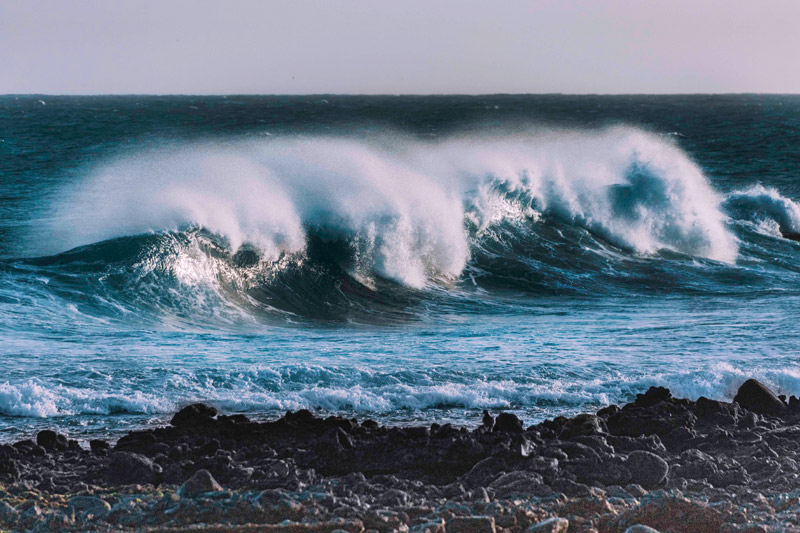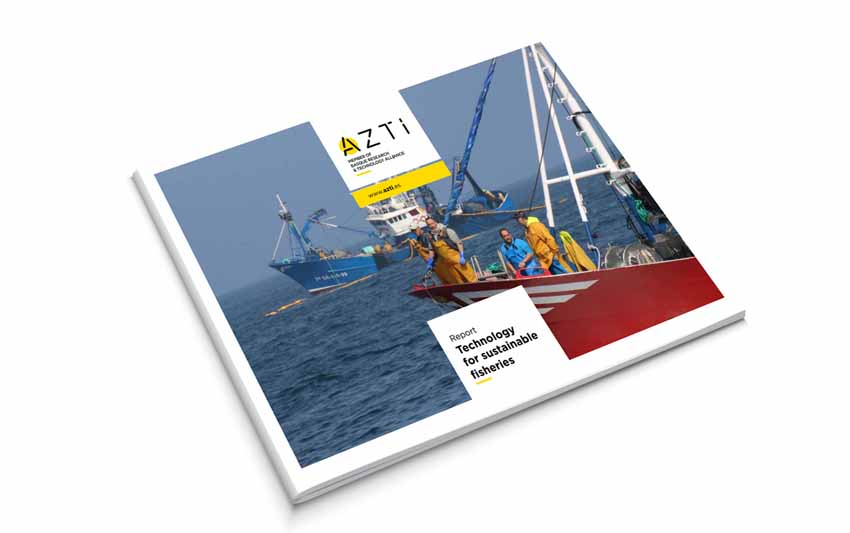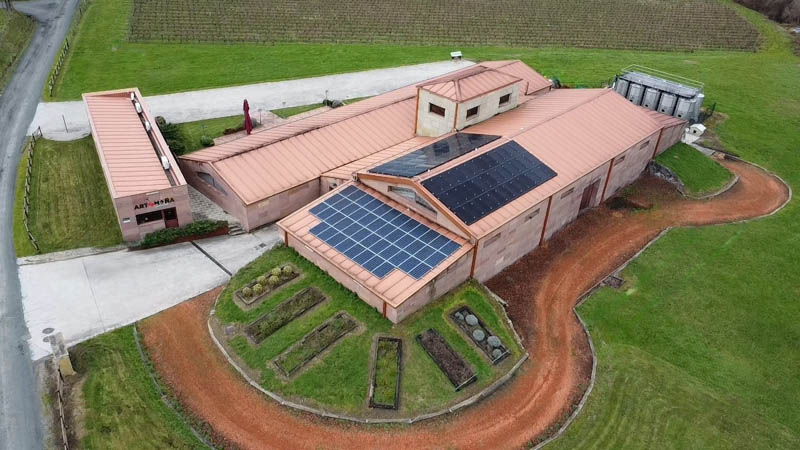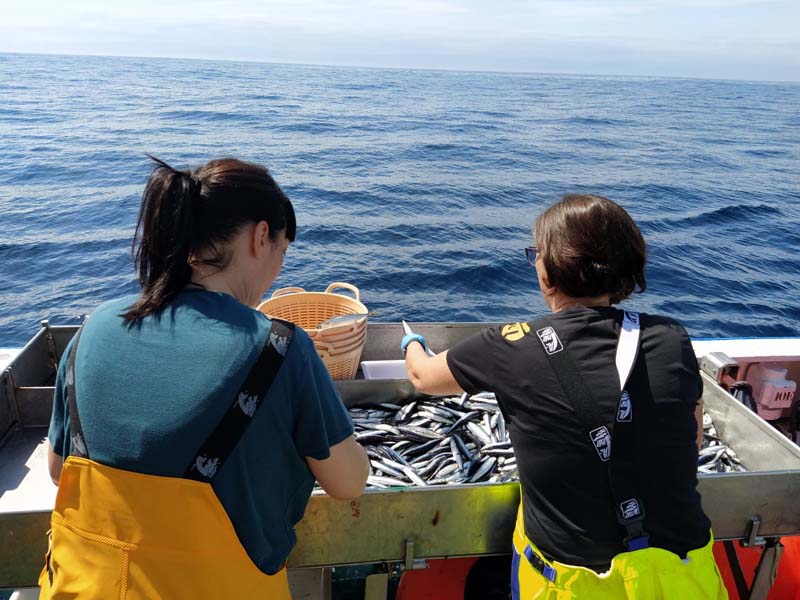SafeWAVE project launch, addressing environmental concerns of wave energy technologies emerging
Últimas noticias
Digital Transformation of the Fishing Fleet: AZTI Explores the Future of the Industry with AI and Sustainable Solutions
The replica of the San Juan will set sail on a scientific mission thanks to an agreement between Albaola and AZTI.
Artomaña Txakoli Achieves the Best Enviroscore Category (A), as a Result of Its Environmental Commitment
- The AZTI technology centre is taking part in the European SaveWAVE initiative with the aim of improving understanding of the environmental effects of the technologies used to obtain energy from waves.
- The initiative is financed by the European Maritime and Fisheries Fund (EMFF) and takes over from a previous study with the same objectives.
- During the project, data will be analysed from different sites of the world electricity grid located on the coasts of the Basque Country, Portugal and France.
Derio, 17 February 2021 – The Atlantic coast has a large potential as a marine renewable energy resource, but it is still far from being exploited. These resources include offshore wind, wave and tidal energy. This industrial activity has considerable potential to increase the diversity of energy sources, reduce greenhouse gas emissions and stimulate and diversify the economies of coastal communities.
However, due to the nascent state of development of marine renewable energies and wave energy in particular, many uncertainties remain regarding the potential environmental impacts these technologies could have on the marine environment. The complexity of the administrative processes for project approval and the need to find suitable sites through adequate marine spatial planning are other obstacles that could hinder the future development of this sector. Finally, society in general and not only developers and the administration need a better understanding of these Renewable Energies.
Overcoming all these non-technological barriers is the main objective of the European SaveWAVE project, financed by the European Maritime and Fisheries Fund (EMFF) and launched in October 2020.

Índice de contenidos
Improving understanding of environmental impact
The Basque technology centre AZTI, a member of the BRTA alliance, is leading this initiative that aims to improve understanding of the environmental impacts on the marine environment of wave energy projects by collecting, processing, modelling, analysing and sharing environmental data obtained around wave energy harvesters operating in real offshore environments, specifically the Mutriku power plant (Gipuzkoa) and devices installed on the offshore MRE test platforms at BIMEP in Bizkaia, Spain; Aguçadoura in Portugal and SEM-REV in Nantes, France.
The initiative takes over from the European WESE project, which is also funded by the EMFF and will be completed in 2021.
“In SaveWAVE we will continue the work carried out in WESE to increase knowledge on priority research areas, extending the analysis to other types of sites, technologies and countries,” explains Juan Bald, an expert in marine and coastal environmental management and general coordinator of the SafeWAVE project.
Strategies to facilitate administrative procedures and educate society
Similarly, support guides for the administrative processing of wave energy projects, decision tools for the Marine Spatial Planning of new sites, open access databases for the information collected in the project and strategies to improve the education and engagement of society at large in relation to marine renewable energies among the coastal communities of France, Ireland, Portugal and Spain will be developed.
“The complexity of licensing processes for marine renewables is also identified as one of the main barriers to the development of the sector. The lack of clarity of the procedures (derived from the lack of specific laws for this type of project), the varied number of authorities that must be consulted and the need for proper Marine Spatial Planning are examples of the problems identified that delay the authorisation of projects”, points out the AZTI expert.
The results of SaveWAVE will complete these guidelines for ocean energy developers and authorities in most EU countries in the Atlantic Arc.
Ocean energy key to EU blue strategy
During the Oceans Day in the framework of the climate conference (COP25) held in Madrid (2-13 December 2019), the European Commissioner for Environment, Oceans and Fisheries, Virginijus Sinkevičius, explained that “combating climate change and protecting the biodiversity of marine life is a centrepiece of the EU’s ocean policy. Due to climate change, our oceans are facing serious challenges that require an urgent and comprehensive response. But the oceans are also part of the solution. Ocean energy is therefore one of the pillars of the EU’s blue growth strategy.
Multidisciplinary consortium
The project consortium, led by AZTI, includes a multidisciplinary team of partners bringing together technology device developers (BIMEP, WELLO, CORPOWER OCEAN and Geps Techno), consultants and researchers (WavEC, CTN, AZTI, RTSYS, UCC and ECN) and data managers (Hidromod), with the aim of involving the wider community of key ocean energy stakeholders from across Portugal, Spain, France and Ireland.







